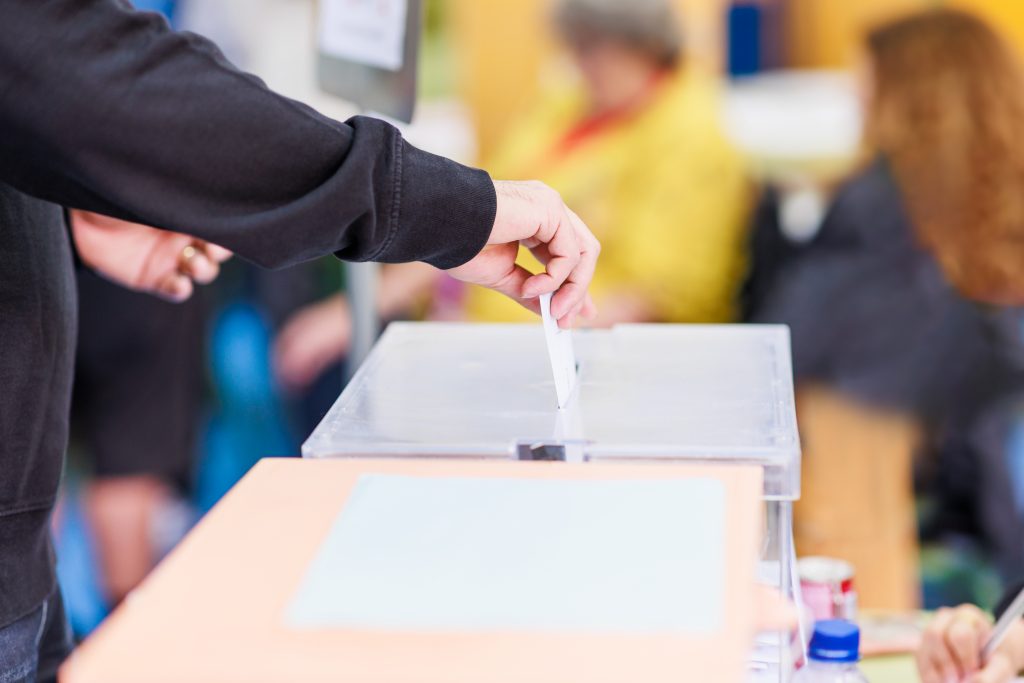Assembly Committee on Campaigns and Elections
Committee Chair: Senator Daniel Knodl
Testimony to be Delivered on 2-8-2024
Chair Knodl and members, My name is Matt Dean from Heartland Impact and I am here to share our concerns with ranked choice voting, and support for Senate Joint Resolution 94. Heartland Impact is the advocacy and outreach affiliate of The Heartland Institute, a nearly 40 year old public policy research organization based in Arlington Heights, Illinois. Both are independent, national, nonprofit organizations working to discover, develop, and promote free-market solutions to social and economic problems. Heartland Impact specializes in providing state lawmakers the policy and advocacy resources to advance free-market policies towards broad-based economic prosperity.
As political activists seek to complicate, extend, and subject to influence, elections, voters need to protect their ballot. Covid emergency declarations extended voting time, and dramatically increased mail-in balloting. States across the country are adopting ranked choice voting (RCV) to further influence voters after they have ballot in hand. SJ94 seeks to ensure that voters are protected from RCV at every level.
Here in Wisconsin, SB 528 which was heard here on December 12th, would require the use of so-called “final- five” voting in primaries, which would (regardless of party) advance five candidates from a California-style “Jungle Primary” into a complicated ranked-choice voting (RCV) system to replace traditional Election Day voting.
Ranked Choice Voting will just make things worse for voters already frustrated with a process many already believe to be unfair and untrustworthy. RCV makes ballots harder to cast, harder to count and more susceptible to outside influence.
Ranked Choice Voting makes it harder to vote because your constituents are forced to not only learn about every candidate for each race, but they are also asked to handicap the race in a way that could tilt the balance in favor of a candidate they do not want. Unlike delegates in an endorsing convention (a process I am sure you are all familiar with), your constituent won’t know which candidate is eliminated between rounds of voting.
Ranked Choice ballots of course are harder to count. Round after round of iterations, as last place candidates are eliminated, some of your constituents’ votes are thrown out. In a five-candidate race, you are voting for one person and against four with increasing levels of distaste. This leads to voters naturally leaving off their least favorite candidates.
In our republic, we believe every legal vote should be counted. But under RCV, so-called “exhausted votes” (those eliminated because of incomplete ballots) are uncounted. In 2018, Maine’s first trial with RCV left 9,000 voters with uncounted ballots because of exhausted ballots. There were 126,139 valid votes cast in Maine’s Democratic primary. In the final round, only 117,250 ballots were counted. The other ballots didn’t count in the final tally because they did not include rankings for the top two candidates. That translates to more than 6 percent of voters who tried to cast a ballot but had the same impact on the election as they would if they had just stayed home.
In our last hearing, I shared some of the experiences Minnesota has had in more than a decade of ranked choice voting at the municipal level.
Today, I would like to share the experience of another state. In Nevada, RCV was put before the voters in 2022 in a statewide ballot initiative very similar to Maine and Alaska. In that initiative, a handful of wealthy donors put up nearly 80% of the $43.69/vote to narrowly pass the initiative (53% in favor, 47% against). As astronomical as that may sound, consider that Nevada is in store for round two to pass a constitutional amendment in favor of RCV. In Nevada, voters must pass constitutional amendments twice in even years, meaning it is likely they will spend even more to get it across the finish line this year.
Wisconsin has nearly twice the population of Nevada. If a similar campaign was run to put RCV into the state constitution, proponents would spend upwards of $44M in 2024. Ranked choice balloting is being pushed at the local and statewide level across the country this year.
Voters need the protection this amendment offers because proponents will be pushing massive campaigns to pass RCV at every level as soon as possible. Ranked choice voting will make ballots harder to cast, harder to count and more susceptible to outside interference.
Any changes to the constitution should be done with the utmost care and only done so when the legislative remedies are insufficient to protect the right to vote. As the other states show, this is such a rare case. Thak you.
-END-

